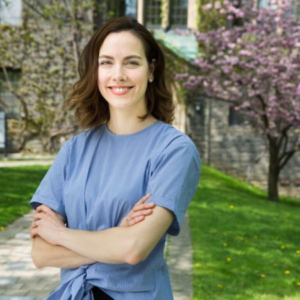 A large portion of the American population will soon by 65 or older; how do we best care for this group?
A large portion of the American population will soon by 65 or older; how do we best care for this group?
Rachel Savage, assistant professor at the institute of health policy, management, and evaluation at the University of Toronto, looks into one way.
Rachel Savage, PhD is a Scientist at Women’s Age Lab and Women’s College Research Institute, Women’s College Hospital, an Adjunct Scientist at ICES, and an Assistant Professor at the Institute of Health Policy, Management and Evaluation, University of Toronto. At Women’s Age Lab, Dr. Savage leads research focused on promoting social connectedness in older adults and supporting aging in place. She is the principal investigator of a national study, funded by the Canadian Institutes of Health Research, that evaluates how loneliness in older adults impacts the health system.
Reimagining Aging in Place
Both Canada and the United States are set to reach super-aged status in the coming decade, meaning over 20 per cent of the population will be over the age of 65.
Most will be older women with unique, and often misunderstood health needs.
Many older adults are aging alone in the community even though we know being connected to family, friends, neighbors and communities are crucial for health and well-being.
Older adults are also at elevated risk for homelessness, something that can be exacerbated by financial disparity and social isolation, and a lack of access to and understanding of support services available.
We need to rethink how older adults age in the community.
Naturally Occurring Retirement Communities (or NORCs) offer a community-based solution to these pressing issues. NORCs are a geographical area, often a high-rise apartment building, that has become home to a concentration of 30 per cent or more older adults.
Offering enhanced supports within NORCs is a low-cost approach to support healthy aging that bridges connections between older adults and their communities and creates a space where external resources can have a bigger impact.
The Women’s Age Lab, along with partners, is embarking upon a six-year research study to support the implementation and evaluation of three enhanced NORC supportive service models across 10 sites in Ontario.
Examples of the interventions include on-site staff with specialized training and recreation coordination, mobile integrated health units to support distinct clinical needs, in-unit support for virtual care, and dedicated spaces for social and health programming.
We hope our initiative will help establish a model for others to follow that will improve the quality of lives of older adults, mostly women, as they age in place.

Comments
2 responses to “Rachel Savage, University of Toronto – Reimagining Aging in Place”
It’s important to know about the “Village to Village” movement in the US, in which seniors form voluntary nonprofit communities to help one another age in place, in their own homes or apartments and neighborhoods they know…They include opportunities for social connections, educational programs, and companionship. Check village to village website for locations of hundreds of them throughout the U.S.
Naomi F. Collins, Ph.D.
How van I stay in touch with the NORC program in Ontario?